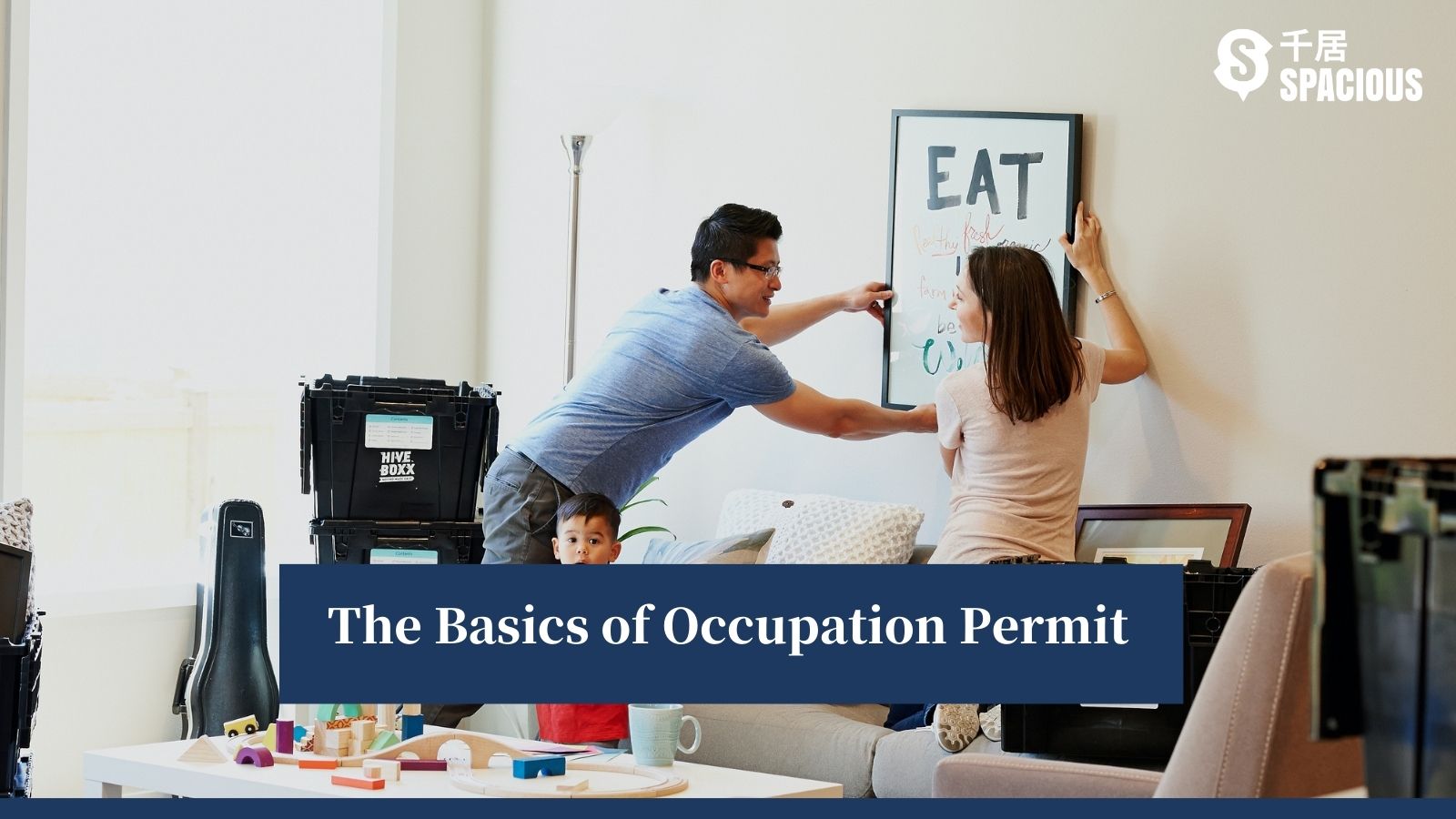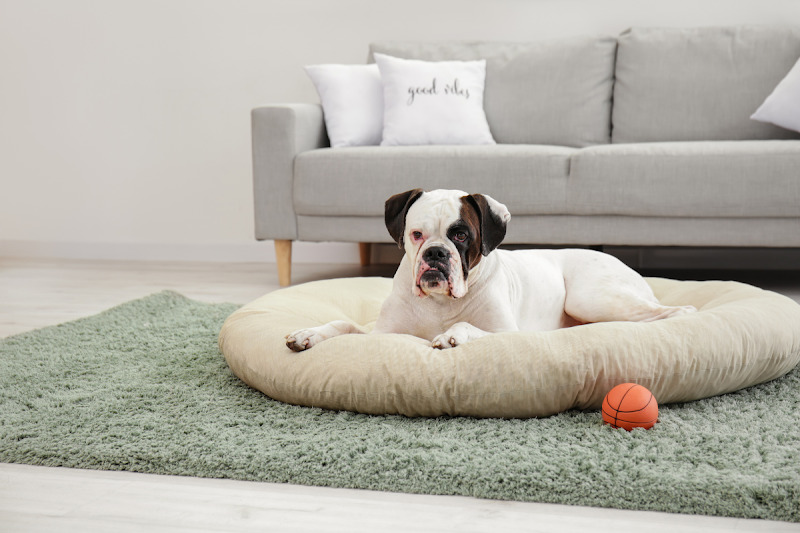
Hong Kong is one of the most densely populated cities in the world, with limited space for both humans and their furry companions. Cohabitating with a dog in Hong Kong can be challenging, but with some preparation, patience, and love, it is possible to provide a happy and healthy environment for your four-legged friends. In this blog, we speak to Buddy Bites — Hong Kong’s first dog food subscription brand building an all-inclusive, pet-friendly community in the concrete jungle.
Dog owners themselves with not just one but multiple dogs, Buddy Bites are experienced when it comes to ‘shoebox living’. Below are some tips on how to make living with a dog in Hong Kong pleasant for both humans and their furry friends.
1. Find a Dog-Friendly Living Space
Finding a dog-friendly living space means looking for a home where your pets can live comfortably. That includes looking for a home that allows pets. Why? Because uprooting a dog’s habitat can cause more stress than you know. Dogs need a routine to thrive and feel more relaxed, so you want to minimise this change as much as possible. Moving in itself can cause huge stress and anxiety to our furry friends — we’re talking moving around furniture and strangers coming into your home. This throws familiarity out the window. It won’t be hassle-free living to live in a non-pet-friendly residence that results in sneaking your dog in and out in a dog bag through a back entrance, nor is it very neighbour-friendly to introduce barking as a noise nusiance.
If you can afford it, look for a home with outdoor space or look for a location that is dog-friendly or has a few pathways to ensure your dogs can get enough exercise throughout the day, in addition to doing their toilet business.
No matter the size or breed of your dog, finding a space or corner that they can call their own is paramount in providing them with a sense of security. If you have a small-sized breed, you can opt for smart furniture that will allow you to save space, such as a bedside table with a little nook underneath, or even dedicate one of your cubby holes within a shelving unit.
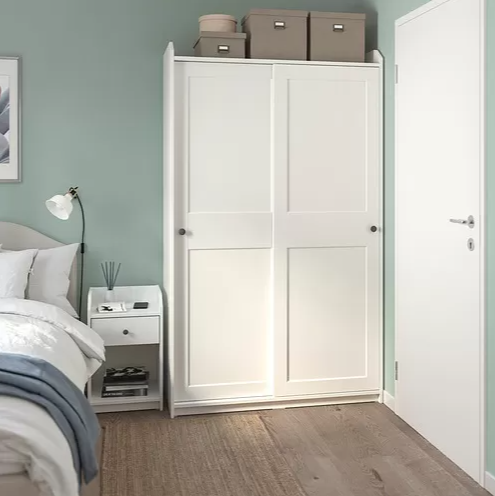
Dog crates can provide a sanctuary for larger dogs and is also a great tool for potty training puppies that can grow into it. If you can’t find one that matches the aesthetic of your house, you can also opt for a dog bed and blanket to make it cosy for your furry friend.
2. Consider Materials & Textures
Think about wear and tear. Almost all contracts should have a wear and tear clause. Some landlords will have a pet-friendly apartment but will stipulate breeds, size, and the number of pets. In some cases, a separate pet clause is added to cover renovation fees by the tenant towards the end of a contract, should their be any scratches and such.

Wooden floors provide a cosy ambience and can get scratched easily. Tiles are nice and cool during the summer months, yet cold during the winter months, and are generally easier to clean up from.
Make sure you understand the terms before you sign a lease and check if a pet deposit is required or a monthly fee for keeping pets.
3. Consider Your Dog’s Exercise Needs
Dogs need regular exercise to maintain their physical and mental health. In Hong Kong, it can be challenging to find green spaces to let your dog run around freely.
Think about how much exercise your dog needs. Smaller breeds will tire out more easily and larger breeds tend to need more space to run around. Check if you have a dog park nearby or hiking trails that you can explore with your pet.

Also, consider the age of your pet. If you have a senior dog, consider an apartment with lift access to minimise the number of steps they may need to climb and neighbourhoods with flat streets to avoid inclination. This can apply to short-legged dogs such as daschunds and corgis that are prone to back issues, and larger breed dogs such as labradors, golden retrievers, and german shepherds that are susceptible to hip dysplasia.
Great open areas for dogs to run around are Cyberport or Sai Kung dog park which are safe and fenced-in areas where dogs can run and socialise with other dogs. If your dog is more adventurous and good with recall, you can take them on a hike up to the Peak via the Morning Trail and let them do zoomies at the open grassy area of Pinewood Battery. There are plenty of nature trails around Hong Kong to make sure your pooch gets fresh air, physical exercise, and mental stimulation from new sights and scents.
4. Find a Veterinarian & Emergency Clinic

Finding a good veterinarian is crucial for your dog’s health and well-being. Scout out the neighbourhood for a veterinarian that is experienced with dogs and has a good reputation. It’s also important to find a clinic that is conveniently located near your home.
More importantly, check for where the nearest 24-hour vet hospital is located. Our fur friends are family and in the case of an emergency, you would want to have a veterinarian within reach at any time of the day.
Make sure to schedule regular check-ups and vaccinations for your dog. In Hong Kong, it is mandatory that your dog has the Rabies vaccination every 3 years and they must wear an ID tag at all times. This should include their name and contact numbers in case they are lost and found.
5. Socialise & Desensitise Your Dog
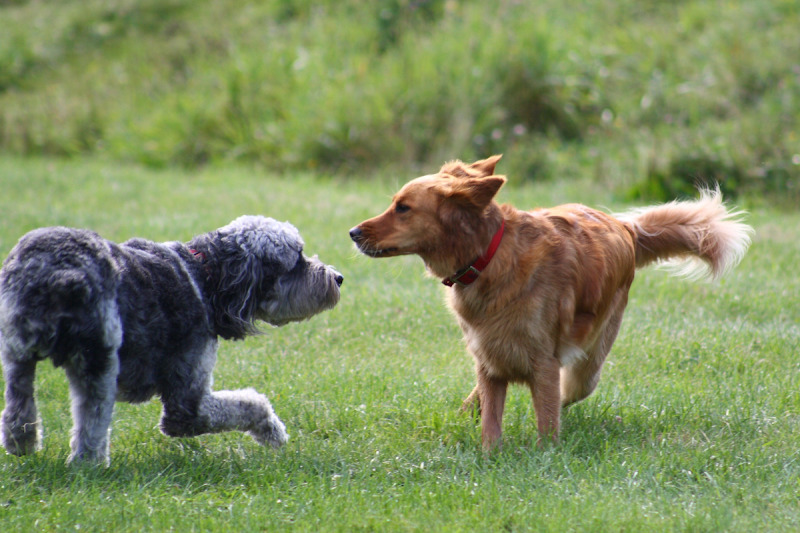
Dogs are social animals and thrive on interaction with people and other dogs. Socialisation is essential for your dog’s mental health, and it can help prevent behavior problems. Meet dogs on neutral ground, such as on a sidewalk of a quiet street and leave them on the lead as they interact, so they can get to know each other while you can react quickly if an interaction becomes heated or too excitable. Neutral ground allows for less territorial behaviour that can occur in the home and even in dog parks or cafes that your dog may frequent.
Socialisation classes and obedience training is a good way to solidify your dogs’ foundation through learning basic commands, while interacting with other dogs in a controlled environment.
Puppies can learn from the body language of older dogs on what they can and cannot do, but be careful not to socialise your puppy (especially unattended) with a much larger breed who may not understand their strength.
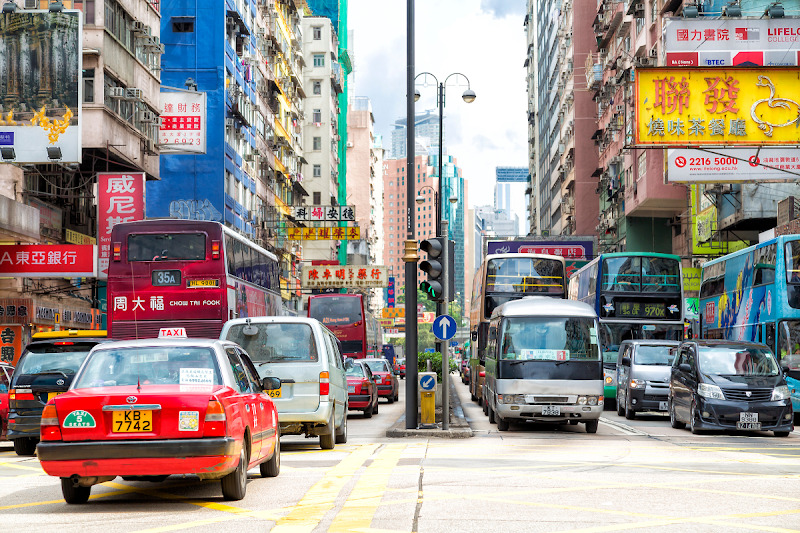
You can densitise your dog to certain environments, sounds and objects that they may not be used to, especially if they are an older dog or are adopted. Getting adjusted to a city can take time for especially anxious dogs as the sound of traffic lights, large lorries and other animals can unnerve them. Sit outside with your dog out of the way, so that they can people watch while knowing their safe and sound with you next to them. Bring treats to reward them when they don’t react to a bicycle or honking. You can gradually increase the exposure at home by playing sounds on repeat at a low volume and continue to train with treats until they are not reactive.
6. Be a Responsible Dog Owner
Prepare for house training, especially if you have a puppy. If you’re also a supporter of adopt don’t shop and have or are adopting from one of Buddy Bites’ shelter partners, you may also need to help housetrain your new furry friend. In such a tropical climate as Hong Kong, it can be too hot in summer to take your dog out to do their business or it can be raining cats and dogs during a typhoon.

As a dog owner, you can choose for your dog to solely do their business outside and walk them in the morning, late afternoon, and evening or you can choose to use an indoor toilet system — pee pads are less environmentally friendly. You can also pay particular attention to the facilities of the residences you are looking at to see if they have a shaded area where your dog could do its business when the sun is at its highest during the day or a covered floor if the weather has turned for the worst with heavy rain and wind.
As a concrete jungle, Hong Kong is sensitive to absorbing heat from direct sunlight — storing the heat and releasing it slowly — allowing smells to emit and linger, so be sure to clean up after your dog outside. Spray a good dose of water after your dog or even add a bit of eco-friendly soap to the water to rinse areas down. Dispose of waste properly using Buddy Bites’ biodegradable poo bags to be kind to the environment.

Part of pet parent etiquette also means ensuring your dog is well-behaved. Leash your dog at all times, (legally, dogs over 20kg must be leashed at all times unless they have a license), and be considerate of your neighbours and community.
7. Beware of Seasonal Changes
Unlike Europe, Hong Kong apartments are designed to keep heat out and not in. In the summer it can be very hot and humid, which can be dangerous for dogs. Make sure your dog has access to shaded parts of the house, plenty of fresh water, and flowing air to cool off.
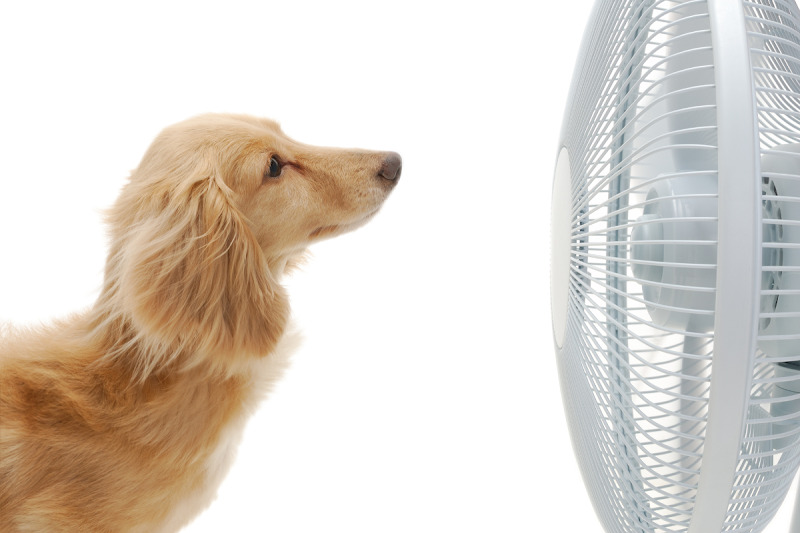
Turn on a standing fan or prop a table fan up onto a table, so that their fur doesn’t get caught or switch on the aircon. Dogs don’t sweat, so it’s important to recognise the signs. Namely, panting with their tongue out is a clear sign that they are in distress from the heat.
In winter, it can get chilly at night — feeling colder indoors than it actually is outdoors. Cover your dog’s crate with a nice thick blanket if they have one to retain the heat, and consider a dog jacket or sweater for shorter-haired breeds that don’t have a double coat to regulate their body temperature and keep them warm.
Finding an ideal apartment in Hong Kong can be far and few between, but there are some good finds — it’s all about timing and opportunity, and Spacious can help you get there. The above parameters and considerations will help dog parents ensure that they are giving their dogs the best life possible with what’s available at hand, and that is fair to both human and canine welfare.



